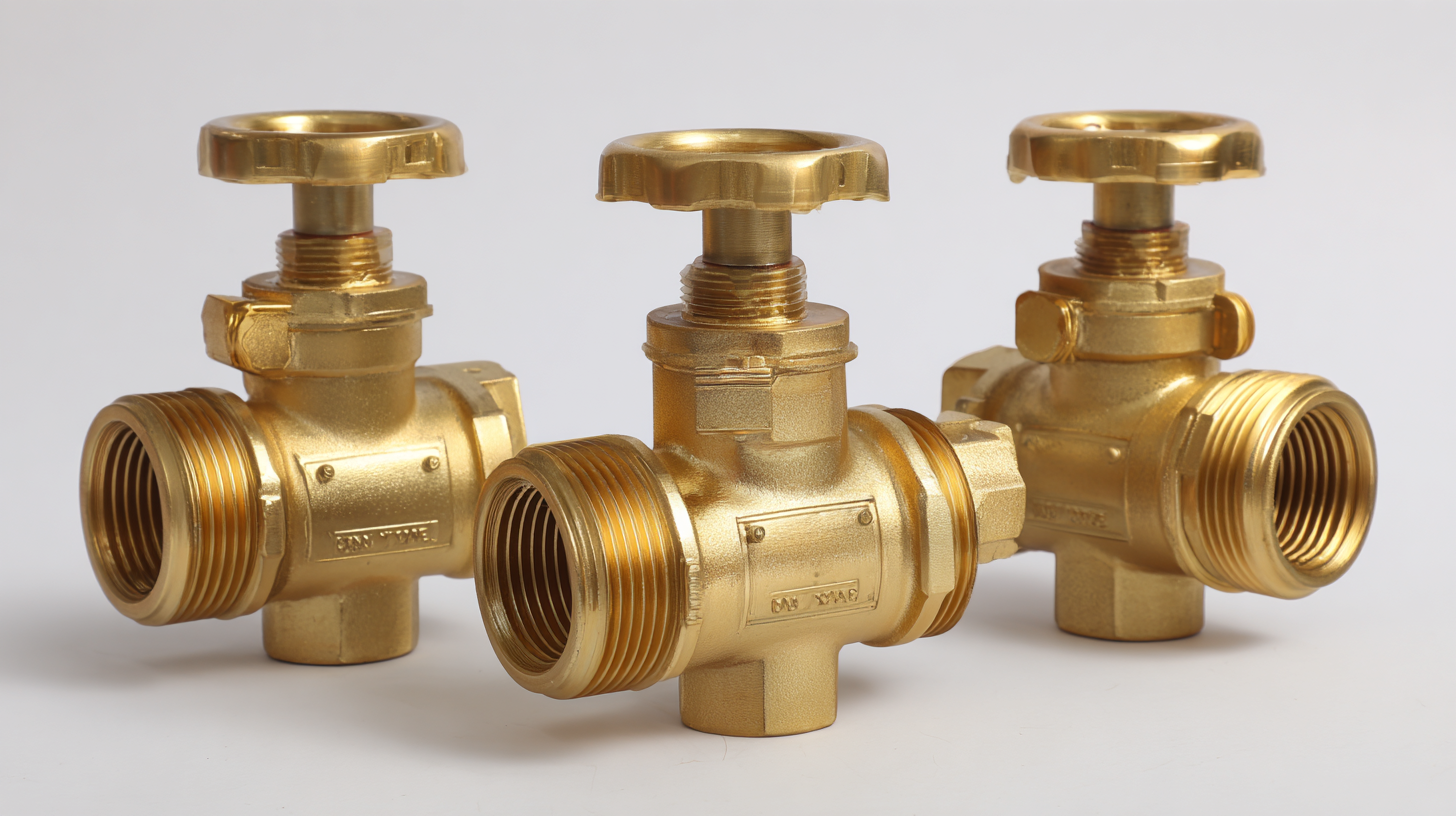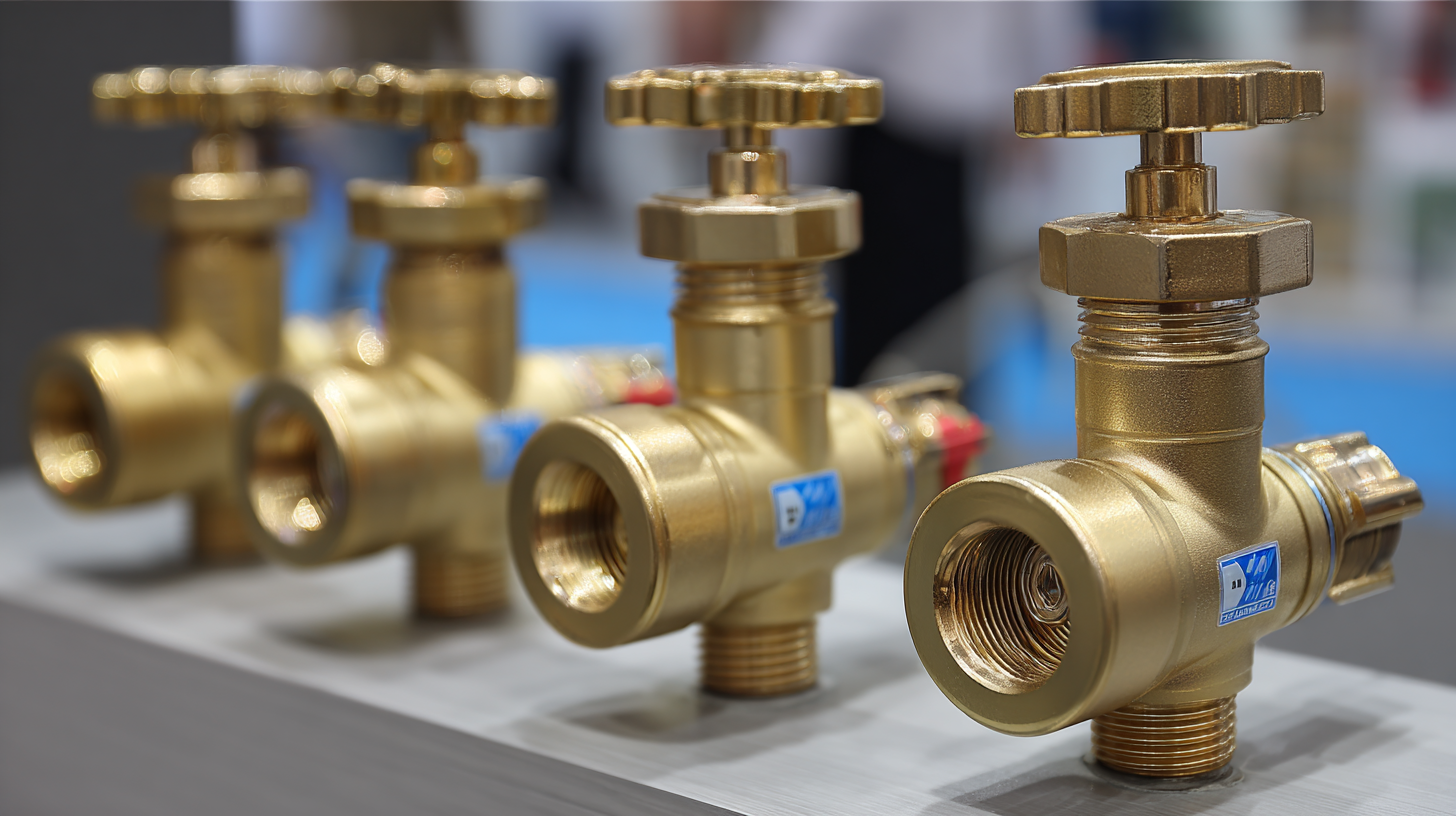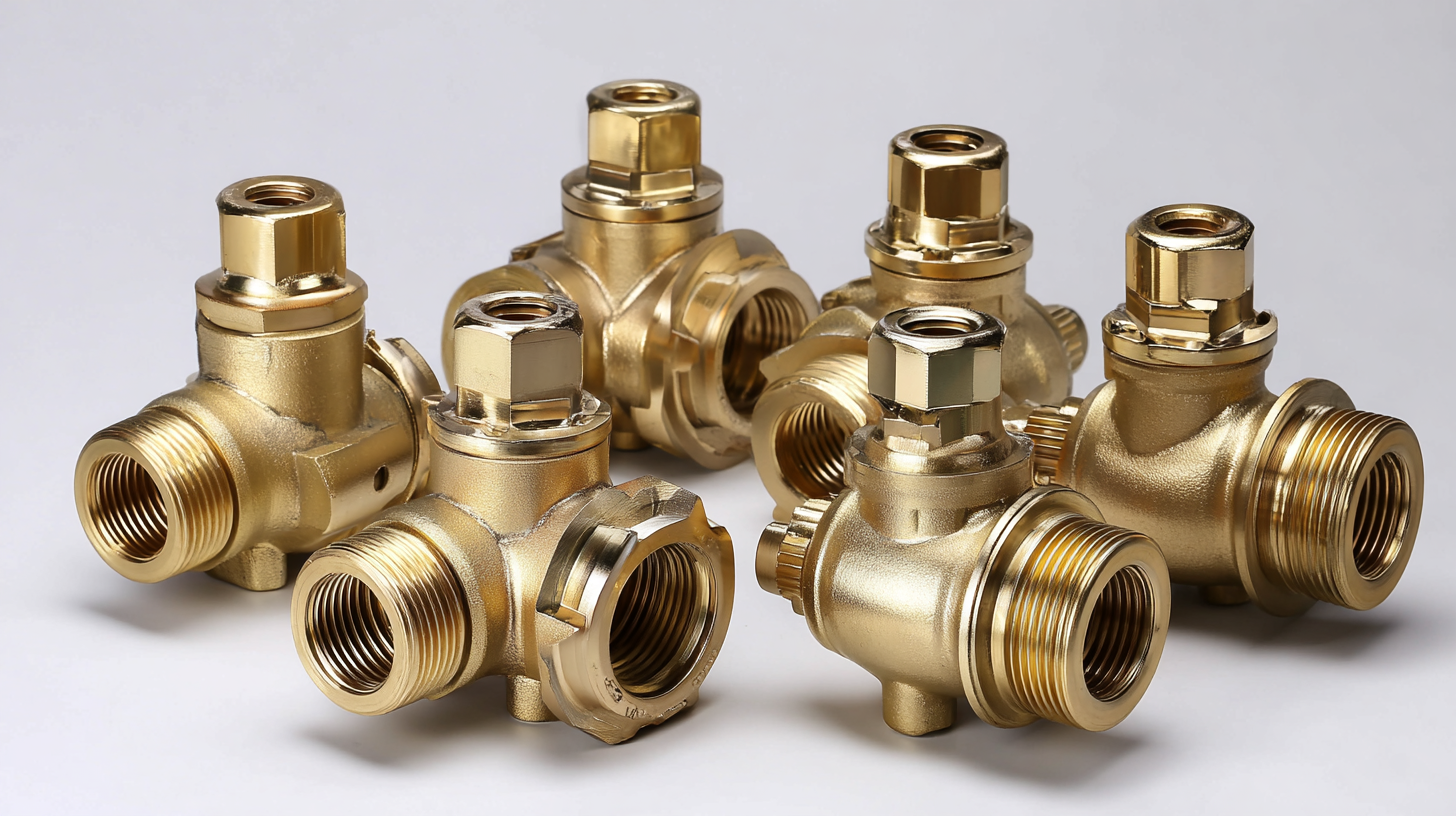In the realm of industrial and plumbing solutions, brass ball valves have emerged as essential components known for their durability and efficient flow control. As global buyers seek high-quality brass ball valves, the challenge lies not just in selecting the right product, but also in identifying reliable suppliers capable of delivering outstanding performance and value. This ultimate guide aims to illuminate the unique benefits of brass ball valves, including their corrosion resistance, ease of operation, and versatility in various applications. We will explore practical strategies for finding superior suppliers, ensuring that buyers are equipped with the knowledge necessary to make informed decisions in this competitive market. Whether you are involved in large-scale construction projects or require components for smaller applications, understanding the nuances of brass ball valves and their suppliers can significantly impact your operational success.

 Brass ball valves stand out in various industrial applications due to their unique features, making them a top choice for global buyers. One of their most significant advantages is their durability. Brass, an alloy of copper and zinc, provides excellent resistance to corrosion, ensuring that these valves maintain their integrity even in challenging environments. This longevity translates to less frequent replacements and lower maintenance costs, making them economically viable for both small-scale operations and large industrial systems.
Brass ball valves stand out in various industrial applications due to their unique features, making them a top choice for global buyers. One of their most significant advantages is their durability. Brass, an alloy of copper and zinc, provides excellent resistance to corrosion, ensuring that these valves maintain their integrity even in challenging environments. This longevity translates to less frequent replacements and lower maintenance costs, making them economically viable for both small-scale operations and large industrial systems.
Another distinguishing characteristic of brass ball valves is their superior flow control. The design of a ball valve allows for quick and secure shutoff, which is essential in processes where fluid dynamics must be precisely managed. Additionally, the smooth inner surface of the valve minimizes turbulence, reducing the risk of wear over time. This design feature not only enhances the performance of the valve but also contributes to overall efficiency in fluid handling systems, allowing operators to achieve optimal performance while conserving energy. The combination of durability and effective flow regulation positions brass ball valves as an essential component in diverse applications worldwide.
Brass ball valves play a crucial role across various industrial applications due to their reliability, durability, and excellent resistance to corrosion. These valves are commonly found in sectors such as oil and gas, water treatment, and chemical processing. Their simplistic design allows for easy operation, enabling quick shut-off and flow control. Furthermore, brass ball valves can withstand high pressures and temperatures, making them ideal for demanding environments.
The growing industrial valve market, projected to expand significantly from USD 84.97 billion in 2025 to USD 128.22 billion by 2035, highlights the increasing demand for efficient and robust valve solutions. Innovations in valve technology are enhancing functionality and performance, thereby reinforcing the integral role of brass ball valves in modern industrial processes. With an expected CAGR of 4.2%, industries are recognizing the value of investing in quality valve products that ensure safety and efficiency in their operations. As global buyers consider their options, the unique benefits of brass ball valves present an attractive proposition for various applications.
| Application | Benefits | Material Quality | Temperature Range | Pressure Rating |
|---|---|---|---|---|
| Water Supply | Corrosion resistance and low maintenance | High-grade brass | -20°C to 120°C | PN 16 |
| Natural Gas | Leak-proof design and durability | Lead-free brass | -30°C to 150°C | PN 25 |
| HVAC Systems | Efficient flow control and energy savings | DZR brass | -10°C to 95°C | PN 20 |
| Chemical Processing | Chemical resistance and reliability | Special alloy brass | -20°C to 100°C | PN 30 |
| Irrigation | Reduced leakage and improved flow rate | Brass with nickel plating | 0°C to 80°C | PN 16 |
The manufacturing of brass ball valves in China has seen significant advancements in quality assurance and adherence to international standards. According to a recent industry report by MarketsandMarkets, the global brass ball valve market is projected to reach USD 3.58 billion by 2027, with a compound annual growth rate (CAGR) of 4.5% from 2022. This growth is largely driven by the increasing demand for high-quality valves in various sectors, including oil and gas, water treatment, and HVAC systems. Chinese manufacturers are rising to the challenge, implementing stringent quality control measures and international compliance standards to enhance product reliability and safety.

Chinese brass ball valve producers often adhere to ISO 9001 certifications, ensuring that their processes meet global quality management criteria. Furthermore, many manufacturers utilize advanced manufacturing technologies, including precision casting and CNC machining, to deliver products that exceed industry performance benchmarks. A report from Research and Markets highlights that up to 70% of brass ball valves produced in China now meet or exceed American Petroleum Institute (API) standards, enhancing their appeal to global buyers looking for durability and efficiency in their applications. As manufacturers continue to innovate and invest in quality assurance, the competitiveness of Chinese brass ball valves on the global stage is set to strengthen.
The global demand for brass ball valves has been steadily increasing, driven by the expanding industrial sector and rising infrastructure development across emerging economies. According to a recent report by MarketsandMarkets, the brass ball valve market is projected to reach USD 4.8 billion by 2025, growing at a compound annual growth rate (CAGR) of 4.8% from 2020. This growth is primarily attributed to the valves' durability, corrosion resistance, and versatility in various applications, making them a preferred choice in industries such as oil and gas, water treatment, and HVAC systems.
As industries continue to evolve, it's essential for global buyers to stay informed about the latest trends in brass ball valve technology. One significant trend is the increasing adoption of automation and smart technologies, which enhance operational efficiency. Buyers should consider suppliers that offer innovative solutions that cater to these advancements in technology.
Tips: When selecting brass ball valves, always check for certifications and compliance with international standards to ensure safety and performance. Additionally, consider sourcing from manufacturers that provide extensive warranty options, as this can offer peace of mind and long-term reliability of your investment.
Brass ball valves are increasingly recognized for their cost-effectiveness, especially when compared to alternatives made from stainless steel or plastic. Recent industry reports indicate that the global industrial valve market is expanding, with an increased demand for high-performance materials. Specifically, brass valves compete favorably due to their durability, corrosion resistance, and long service life, which minimize replacement costs over time. In fact, the brass valve segment accounted for a significant share in the market revenue trends, demonstrating that buyers are gravitating towards reliable yet economical options.
Furthermore, the comparative analysis reveals that brass ball valves not only offer an excellent initial price point but also excel in performance parameters such as pressure tolerance and temperature range. In 2023, the market demand for miniaturized products has further heightened, making brass an attractive choice for applications requiring both functionality and compact design. As industries continue to evolve, selecting the right valve material becomes essential for optimizing operational efficiency and maximizing return on investment. Brass ball valves thus stand out as a practical solution in an increasingly competitive global market.



Same Day Shipping
ISO Certified Production